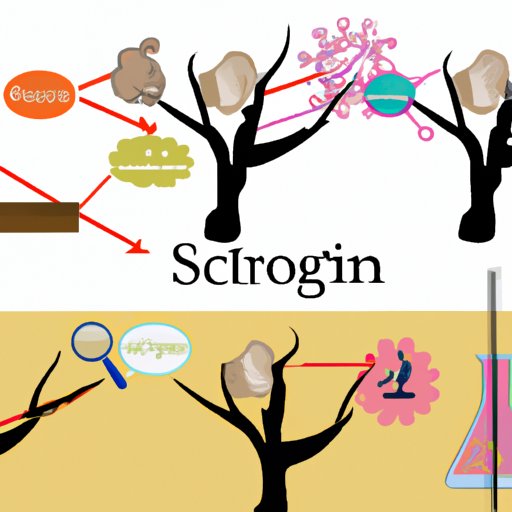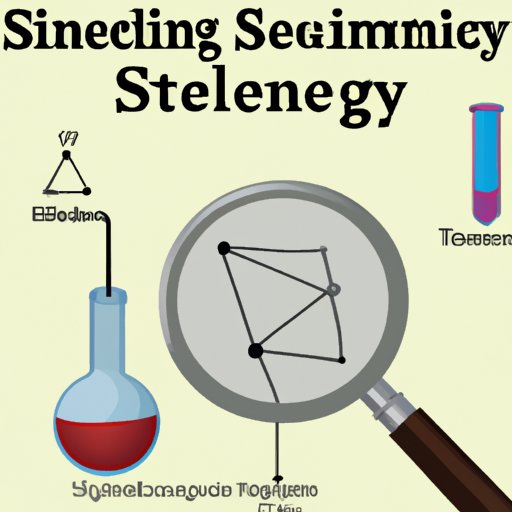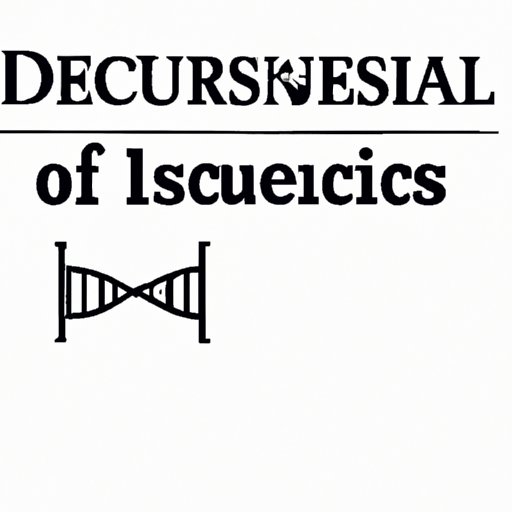Introduction
Science is a field of study dedicated to understanding the natural world. It encompasses a wide range of disciplines, from physical sciences such as physics and chemistry to biological sciences like biology and ecology to social sciences such as psychology and sociology. Through observation, experimentation, and analysis, scientists strive to uncover the mysteries of the universe and explain the phenomena we observe in our everyday lives.

Exploring the Different Branches of Science
The physical sciences are the oldest and most fundamental branches of science. Physics, the study of matter and energy, is considered the foundation of all other sciences. Chemistry is the study of the properties and interactions of matter. Astronomy is the study of the universe beyond Earth, including planets, stars, galaxies, and other celestial bodies. Geology is the study of the Earth’s structure, composition, and history. Meteorology is the study of weather and climate.
The biological sciences are concerned with living organisms and their interactions with each other and their environment. Biology is the study of life and its processes. Ecology is the study of the relationships between organisms and their environment. Genetics is the study of the inheritance of traits and characteristics. Evolutionary biology is the study of how species change over time. Microbiology is the study of microscopic organisms, such as viruses and bacteria.
The social sciences are dedicated to understanding human behavior and societies. Psychology is the study of the mind, emotions, and behavior. Sociology is the study of social structures and group dynamics. Anthropology is the study of past and present cultures. Economics is the study of how individuals and societies make decisions about resources. Political science is the study of governments and political systems.

Investigating Scientific Principles and Theories
The scientific method is the primary tool used by scientists to investigate the natural world. This method involves making observations, forming hypotheses, testing hypotheses through experiments, analyzing the results, and interpreting the data. Hypotheses must be testable and falsifiable; if an experiment does not disprove a hypothesis, it can be considered valid. Scientists must also consider potential sources of bias and error in their experiments and take steps to minimize them.
Scientists use the scientific method to develop theories. A theory is a well-tested explanation for a phenomenon that has been verified by multiple experiments. Examples of scientific theories include the theory of evolution, the theory of gravity, and the theory of relativity. These theories provide a framework for further scientific inquiry and help scientists understand the natural world.
Examining the Role of Technology in Science
Technology plays an important role in science. Advancements in technology have enabled scientists to conduct more detailed and accurate experiments. For example, modern imaging techniques such as MRI and CT scans allow doctors to diagnose medical conditions with greater precision. Computers have revolutionized the way scientists analyze data and draw conclusions from their experiments. New technologies are being developed all the time to help scientists better understand the natural world.
Technology is also used to conduct research. Researchers use computers to search databases for relevant information, access remote sensing data, and model complex systems. Robotics and automation are used to collect data and perform experiments with greater accuracy and efficiency than ever before. Additionally, satellites and drones are used to capture images and monitor changes in the environment.
Finally, technology is used to develop new technologies for science. Scientists use 3D printing to create models of molecules and proteins. Artificial intelligence is used to analyze large amounts of data and identify patterns. Nanotechnology is used to create materials with unique properties and explore the world of the very small. All of these advances are helping to advance scientific research and discovery.
Understanding the Impact of Scientific Discoveries on Society
Scientific discoveries have had both positive and negative impacts on society. On the one hand, they have led to many benefits, such as improved healthcare, increased crop yields, and cleaner sources of energy. On the other hand, they have also posed dangers, such as the potential misuse of nuclear weapons or genetically modified organisms. Therefore, it is important for scientists to consider the potential consequences of their discoveries and ensure they are used responsibly.
It is also important for scientists to communicate the implications of their discoveries to the public. By informing people about the potential risks and benefits of scientific discoveries, scientists can help ensure that these discoveries are used in a safe and responsible manner. Additionally, scientists should work with policymakers to ensure that laws and regulations are in place to protect the public from any potential harms.

Uncovering the Mysteries of the Natural World
Science is constantly pushing the boundaries of knowledge and uncovering new mysteries about the natural world. As our understanding of the universe grows, scientists are exploring new areas of science such as quantum mechanics and astrobiology. They are also applying scientific knowledge to solve real-world problems, such as developing renewable energy sources or finding treatments for diseases.
By studying the natural world, scientists can gain insight into the underlying forces that shape our universe. Through experimentation, observation, and analysis, scientists can uncover hidden truths and gain a better understanding of the world around us. This knowledge can then be used to improve our lives and make the world a better place.
Analyzing the Relationship between Science and Religion
Throughout history, there has been tension between science and religion. Many religious believers see science as a threat to their faith, while some scientists view religion as superstition and irrationality. In recent years, however, there has been an effort to bridge this divide and find common ground between science and religion.
Some scholars argue that science and religion can be reconciled by understanding them as two distinct but complementary ways of understanding the world. Others point out that science and religion can actually work together, with science providing evidence to support religious beliefs and religion providing ethical guidance for how science should be used. Ultimately, the relationship between science and religion is complex and depends on each individual’s beliefs and values.
Conclusion
In conclusion, science is a broad field of study dedicated to understanding the natural world. It encompasses a variety of disciplines, from physical sciences to biological sciences to social sciences. Scientists use the scientific method to develop theories and use technology to conduct research and develop new technologies. They also consider the potential impacts of their discoveries on society and work to ensure those discoveries are used responsibly. Finally, scientists strive to uncover the mysteries of the universe and apply scientific knowledge to solve real-world problems.
The relationship between science and religion is complex and often contentious. However, by recognizing the distinct yet complementary roles of science and religion, it is possible to bridge this divide and find common ground. Ultimately, science and religion are two distinct ways of understanding the world, and both play an important role in shaping our lives.
(Note: Is this article not meeting your expectations? Do you have knowledge or insights to share? Unlock new opportunities and expand your reach by joining our authors team. Click Registration to join us and share your expertise with our readers.)
